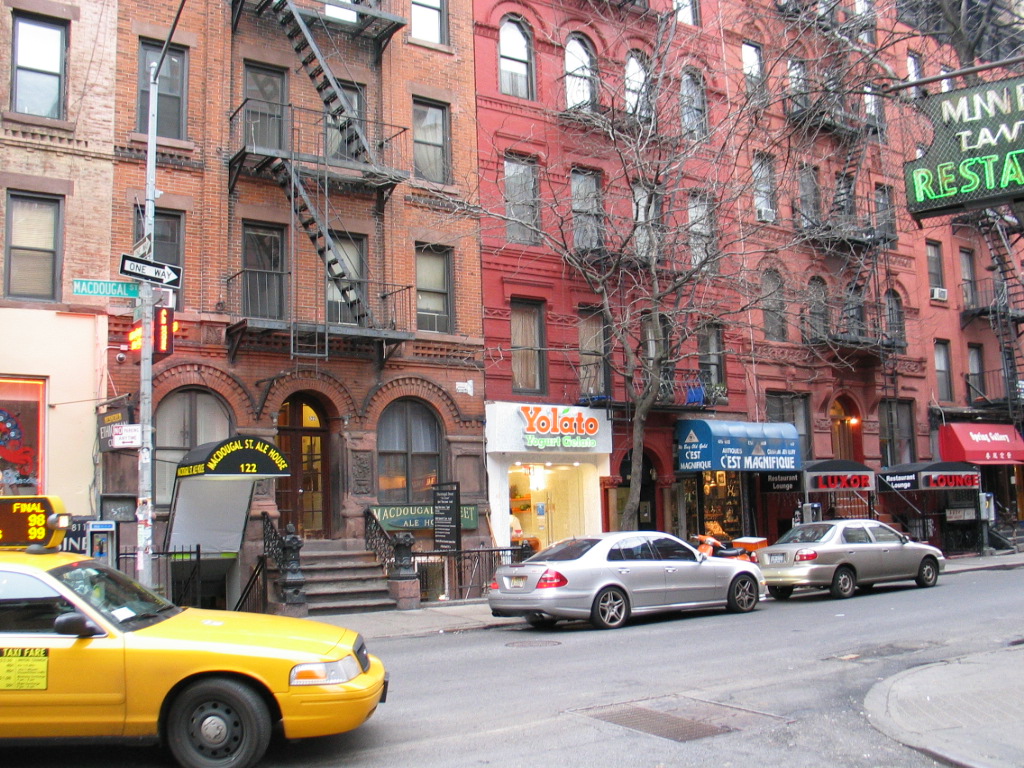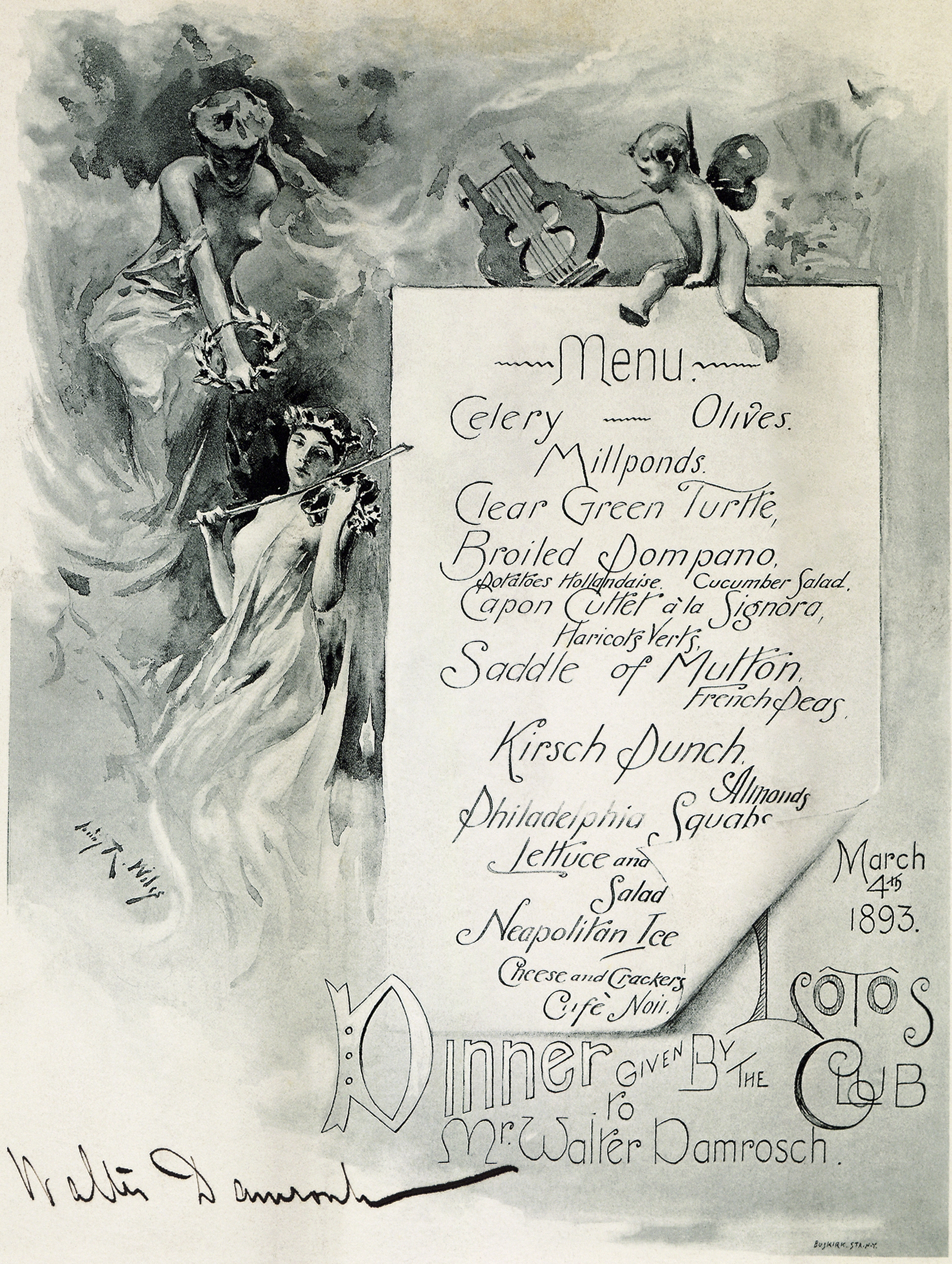|
Mabel Conkling
Mabel Harris Conkling (November 17, 1871 – October 11, 1966) was an American sculptor, and president of the National Association of Women Painters and Sculptors from 1926 to 1928. Early life Mabel Viola Harris was born in Boothbay, Maine, the daughter of Charles Thomas Harris and Orissa Edna Preble Harris. After graduating from Boothbay Harbor High School, She studied art in Paris, at the Académie Julian, the Académie Vitti, the Académie Carmen, and the Académie Colarossi. Among her instructors were William-Adolphe Bouguereau, Raphaël Collin, Luc-Olivier Merson, and Frederick William MacMonnies. A 1904 portrait of Mabel Conkling by MacMonnies was called "the finest portrait MacMonnies has yet made." Career Mabel Harris Conkling's work was included in the 1900 Paris Exposition, the 1904 St. Louis World's Fair, the 1908 Baltimore Sculpture Exhibition, at the National Academy of Design, Harrisburg City Hall, and many other shows. She specialized in public sculptures, incl ... [...More Info...] [...Related Items...] OR: [Wikipedia] [Google] [Baidu] |
Boothbay, Maine
Boothbay is a town in Lincoln County, Maine, United States. The population was 3,003 at the 2020 census. It includes the villages of Back Narrows, Dover, East Boothbay, Linekin, Oak Hill, Ocean Point, Spruce Shores, and Trevett. The Boothbay region is a center of summer tourist activity, and a significant part of its population does not live there year-round.Information obtained in a February 27th, 2011 interview with a former Boothbay resident. Five shipyards are located in the town, the largest of which is Washburn & Doughty. History The Abenaki people that lived in the region called it Winnegance. The first European presence in the region was an English fishing outpost called Cape Newagen in 1623. A Englishman by the name of Henry Curtis purchased the right to settle Winnegance from the Abenaki Sachem Mowhotiwormet in 1666. However, the English were driven from their settlements by the Abenaki in 1676 during King Philip's War in 1676. The colonists returned after the war ... [...More Info...] [...Related Items...] OR: [Wikipedia] [Google] [Baidu] |
Harrisburg City Hall
The Harrisburg City Hall, located at 110 E. Locust St., is the city hall serving Harrisburg, Illinois. Built in 1926–27, the building is the city's second city hall. The architectural firm of Harry E. Boyle and Co. designed the building in the Classical Revival style. The city hall's entrance is covered by a portico extending from the roof; the portico is supported by four large brick columns spanning the height of the building. A band of white concrete encircles the top of the building; this band is topped by a parapet along the roof line. The building continues to house Harrisburg's city government; it also includes several local history displays for visitors to the city. The building was added to the National Register of Historic Places The National Register of Historic Places (NRHP) is the United States federal government's official list of districts, sites, buildings, structures and objects deemed worthy of preservation for their historical significance or "great artist ... [...More Info...] [...Related Items...] OR: [Wikipedia] [Google] [Baidu] |
People From Boothbay, Maine
A person ( : people) is a being that has certain capacities or attributes such as reason, morality, consciousness or self-consciousness, and being a part of a culturally established form of social relations such as kinship, ownership of property, or legal responsibility. The defining features of personhood and, consequently, what makes a person count as a person, differ widely among cultures and contexts. In addition to the question of personhood, of what makes a being count as a person to begin with, there are further questions about personal identity and self: both about what makes any particular person that particular person instead of another, and about what makes a person at one time the same person as they were or will be at another time despite any intervening changes. The plural form "people" is often used to refer to an entire nation or ethnic group (as in "a people"), and this was the original meaning of the word; it subsequently acquired its use as a plural form of ... [...More Info...] [...Related Items...] OR: [Wikipedia] [Google] [Baidu] |
Académie Julian Alumni
An academy (Attic Greek: Ἀκαδήμεια; Koine Greek Ἀκαδημία) is an institution of secondary or tertiary higher learning (and generally also research or honorary membership). The name traces back to Plato's school of philosophy, founded approximately 385 BC at Akademia, a sanctuary of Athena, the goddess of wisdom and skill, north of Athens, Greece. Etymology The word comes from the ''Academy'' in ancient Greece, which derives from the Athenian hero, ''Akademos''. Outside the city walls of Athens, the gymnasium was made famous by Plato as a center of learning. The sacred space, dedicated to the goddess of wisdom, Athena, had formerly been an olive grove, hence the expression "the groves of Academe". In these gardens, the philosopher Plato conversed with followers. Plato developed his sessions into a method of teaching philosophy and in 387 BC, established what is known today as the Old Academy. By extension, ''academia'' has come to mean the accumulation, d ... [...More Info...] [...Related Items...] OR: [Wikipedia] [Google] [Baidu] |
National Association Of Women Artists Members
National may refer to: Common uses * Nation or country ** Nationality – a ''national'' is a person who is subject to a nation, regardless of whether the person has full rights as a citizen Places in the United States * National, Maryland, census-designated place * National, Nevada, ghost town * National, Utah, ghost town * National, West Virginia, unincorporated community Commerce * National (brand), a brand name of electronic goods from Panasonic * National Benzole (or simply known as National), former petrol station chain in the UK, merged with BP * National Car Rental, an American rental car company * National Energy Systems, a former name of Eco Marine Power * National Entertainment Commission, a former name of the Media Rating Council * National Motor Vehicle Company, Indianapolis, Indiana, USA 1900-1924 * National Supermarkets, a defunct American grocery store chain * National String Instrument Corporation, a guitar company formed to manufacture the first resonator gu ... [...More Info...] [...Related Items...] OR: [Wikipedia] [Google] [Baidu] |
Artists From Maine
An artist is a person engaged in an activity related to creating art, practicing the arts, or demonstrating an art. The common usage in both everyday speech and academic discourse refers to a practitioner in the visual arts only. However, the term is also often used in the entertainment business, especially in a business context, for musicians and other performers (although less often for actors). "Artiste" (French for artist) is a variant used in English in this context, but this use has become rare. Use of the term "artist" to describe writers is valid, but less common, and mostly restricted to contexts like used in criticism. Dictionary definitions The ''Oxford English Dictionary'' defines the older broad meanings of the term "artist": * A learned person or Master of Arts. * One who pursues a practical science, traditionally medicine, astrology, alchemy, chemistry. * A follower of a pursuit in which skill comes by study or practice. * A follower of a manual art, such as a m ... [...More Info...] [...Related Items...] OR: [Wikipedia] [Google] [Baidu] |
1966 Deaths
Events January * January 1 – In a coup, Colonel Jean-Bédel Bokassa takes over as military ruler of the Central African Republic, ousting President David Dacko. * January 3 – 1966 Upper Voltan coup d'état: President Maurice Yaméogo is deposed by a military coup in the Republic of Upper Volta (modern-day Burkina Faso). * January 10 ** Pakistani–Indian peace negotiations end successfully with the signing of the Tashkent Declaration, a day before the sudden death of Indian prime minister Lal Bahadur Shastri. ** Georgia House of Representatives, The House of Representatives of the US state of Georgia refuses to allow African-American representative Julian Bond to take his seat, because of his anti-war stance. ** A Commonwealth Prime Ministers' Conference convenes in Lagos, Nigeria, primarily to discuss Rhodesia. * January 12 – United States President Lyndon Johnson states that the United States should stay in South Vietnam until Communism, Communist aggression there is e ... [...More Info...] [...Related Items...] OR: [Wikipedia] [Google] [Baidu] |
1871 Births
Events January–March * January 3 – Franco-Prussian War – Battle of Bapaume: Prussians win a strategic victory. * January 18 – Proclamation of the German Empire: The member states of the North German Confederation and the south German states, aside from Austria, unite into a single nation state, known as the German Empire. The King of Prussia is declared the first German Emperor as Wilhelm I of Germany, in the Hall of Mirrors at the Palace of Versailles. Constitution of the German Confederation comes into effect. It abolishes all restrictions on Jewish marriage, choice of occupation, place of residence, and property ownership, but exclusion from government employment and discrimination in social relations remain in effect. * January 21 – Giuseppe Garibaldi's group of French and Italian volunteer troops, in support of the French Third Republic, win a battle against the Prussians in the Battle of Dijon. * February 8 – 1871 French legislative election elect ... [...More Info...] [...Related Items...] OR: [Wikipedia] [Google] [Baidu] |
Greenwich Village
Greenwich Village ( , , ) is a neighborhood on the west side of Lower Manhattan in New York City, bounded by 14th Street to the north, Broadway to the east, Houston Street to the south, and the Hudson River to the west. Greenwich Village also contains several subsections, including the West Village west of Seventh Avenue and the Meatpacking District in the northwest corner of Greenwich Village. Its name comes from , Dutch for "Green District". In the 20th century, Greenwich Village was known as an artists' haven, the bohemian capital, the cradle of the modern LGBT movement, and the East Coast birthplace of both the Beat and '60s counterculture movements. Greenwich Village contains Washington Square Park, as well as two of New York City's private colleges, New York University (NYU) and The New School. Greenwich Village is part of Manhattan Community District 2, and is patrolled by the 6th Precinct of the New York City Police Department. Greenwich Village has underg ... [...More Info...] [...Related Items...] OR: [Wikipedia] [Google] [Baidu] |
Walter Damrosch
Walter Johannes Damrosch (January 30, 1862December 22, 1950) was a German-born American conductor and composer. He was the director of the New York Symphony Orchestra and conducted the world premiere performances of various works, including George Gershwin's Piano Concerto in F, ''An American in Paris'', and Jean Sibelius' ''Tapiola''. Damrosch was also instrumental in the founding of Carnegie Hall. He also conducted the first performance of Rachmaninoff's Piano Concerto No. 3 with the composer himself as soloist. Life and career Damrosch was born in Breslau, Silesia, a son of Helene von Heimburg, a former opera singer, and the conductor Leopold Damrosch, and brother of conductor Frank Damrosch and music teacher Clara Mannes. His parents were Lutheran (his paternal grandfather was Jewish). He exhibited an interest in music at an early age and was instructed by his father in harmony and also studied under Wilhelm Albert Rischbieter and Felix Draeseke at the Dresden Conserva ... [...More Info...] [...Related Items...] OR: [Wikipedia] [Google] [Baidu] |
_1938.jpg)

_(LOC)_-_Flickr_-_The_Library_of_Congress.jpg)

